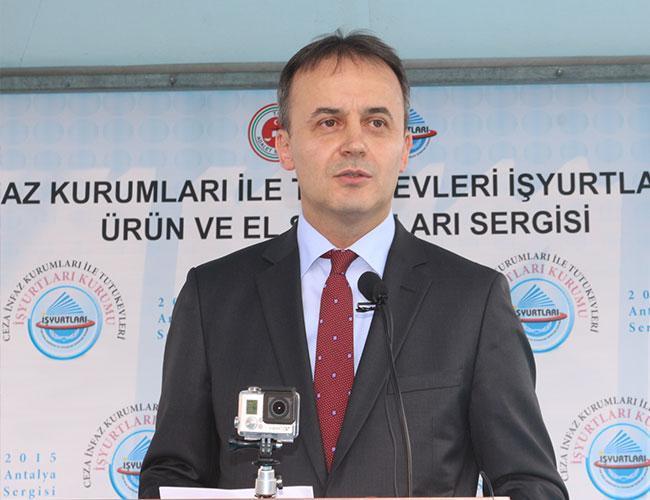
Ankara Chief Public Prosecutor Yüksel Kocaman has blasted the Supreme Court’s recent decision to distinguish between “sympathizers” and “members” of a terror organization, arguing that the rule could complicate investigations into alleged members of the Fethullahist Terrorist Organization (FETÖ).
“While the struggle against [FETÖ] is continuing, I do not think the Supreme Court’s decision is right,” Kocaman told journalists on Nov. 14.
The Supreme Court of Appeals ruled on Oct. 31 that being a sympathizer of FETÖ does not amount to being a member of it. The ruling came after an appeal from local agriculture official Hakan Özcan, who was sentenced to six years and three months in jail in August 2016 for membership of FETÖ. Özcan’s “membership” was initially proven by the fact that he “sent his children to schools affiliated with the organization,” “attended a number of meetings” and “subscribed to the organization’s newspaper.”
FETÖ, under the leadership of the U.S.-based Islamic preacher Fethullah Gülen, is widely believed to have been behind the July 15, 2016 coup attempt that left 250 people dead and nearly 2,200 wounded.
“A normal citizen who attended meetings but did not fully comprehend the FETÖ’s activities does not automatically qualify as a member. On the contrary, those who deposited money with Bank Asya upon the terrorist chief’s instructions are considered members of a terrorist organization,” Kocaman said.
He stated that prosecutors consider using Bank Asya accounts as primary “membership” criteria.
“Our suspects are the ones who opened accounts in line with the organization’s instructions. But if, for example, someone took out household credit before 17/25 [the December 2013 corruption allegations] to buy a house, and if that person continued to make payments after 17/25, then we do not say anything,” Kocaman added.
The AKP accuses FETÖ-linked prosecutors for launching the corruption probes, after which it pledged to remove FETÖ members from the police and judiciary. The purge intensified after the July 2016 coup attempt.
While the post-coup measures are criticized as heavy-handed, victimizing tens of thousands of people, President Recep Tayyip Erdoğan has justified the response, saying the government warned people to steer clear of the organization following the December 2013 probes.
“We cried out for [people] to remove children from [FETÖ] schools. We told them to withdraw money from their banks. Those who did not change banks now deny their responsibility. But they did these things willingly,” Erdoğan said.
Kocaman, however, said that the Dec. 17 and 25 should not be a criteria for the FETÖ probes.
“Some citizens distanced themselves from the organization after 17/25, but the administrative circles remained,” he said.
“Take the administrative team of the organization as an example. They collected money, organized meetings, organized talks. They are accountable for their actions both before and after 17/25,” he added, exonerating “normal citizens who continued to pay their bills.”
15,000 ByLock suspects in Ankara
Kocaman also said 15,000 people in Ankara are suspected of using the encrypted messaging software ByLock, the alleged communication system of choice among FETÖ members.
“Although the vast majority of suspects have been investigated, 25 percent have not,” he added.
CHP criticizes FETÖ probes
Meanwhile, main opposition Republican People’s Party (CHP) spokesperson Bülent Tezcan blasted ongoing probes against FETÖ as “insufficient,” saying the prosecutor’s comments about ByLock users “only proves the [government’s] failure.”
“On the one hand you say ByLock proves FETÖ membership but on the other hand you say you are unable to investigate further,” Tezcan said on Nov. 15 after his party’s Central Executive Board meeting.
“But in the meantime you have enough resources to investigate those who have paid their rent to a bank,” he added.
He criticized the AKP for not being “determined” enough to investigate the “political leg of the coup attempt.”
“The real issue is a lack of determination to reveal the political leg of the coup. It is impossible for such a proceeding to take place because the investigations would lead straight to the AKP and its leading cadres,” Tezcan said.